Crisis Core - Final Fantasy VII - Reunion is the kind of remaster we deserve
Crisis Core - Final Fantasy VII - Reunion is a remarkably faithful remaster
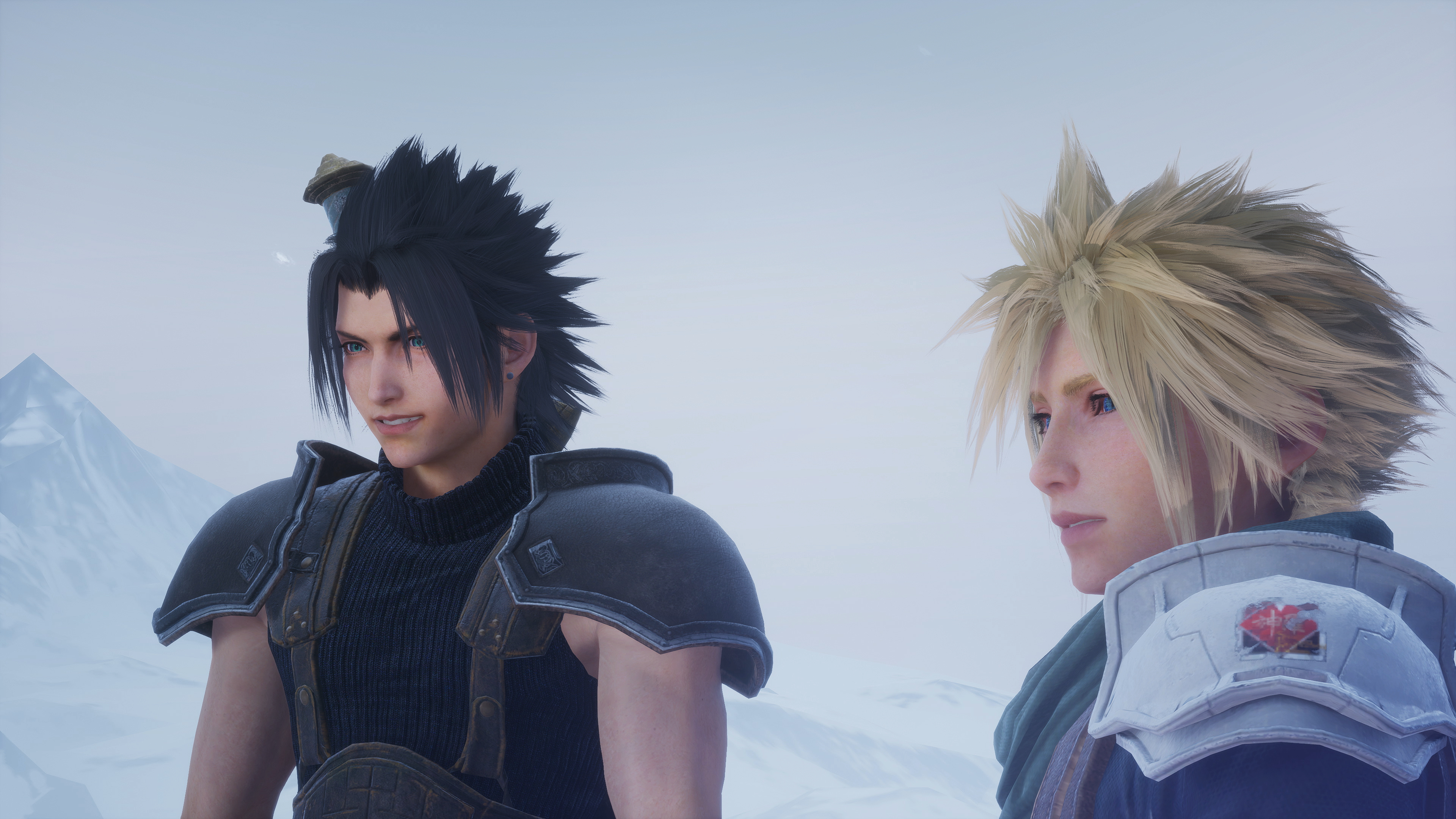
Welcome! This column is part of a regular series in which we share what members of the Tom's Guide staff are playing and enjoying right now, with an eye towards helping you find great games that you may have missed. Be sure to check out our recent entry, where we talk about The Callisto Protocol.
I missed Final Fantasy VII: Crisis Core when it launched in 2007, but it’s been sitting on my “to play” list for the last decade. Naturally, I was interested in playing the Crisis Core - Final Fantasy VII - Reunion remaster, but I was also cautious going in, as remasters are a hit-or-miss genre. While Crisis Core - Reunion boasts renewed 3D models for characters and backgrounds, an improved battle system, fully voiced dialogue in Japanese and English, and a new soundtrack, the bones of the game are still the same as in the 2007 PlayStation Portable version.
Remasters can vary in quality and necessity, but Crisis Core - Reunion manages to succeed on both counts. The original game was limited to a single platform more than 10 years ago, and the updated assets, combat and voice lines do a pretty decent job of presenting the game in its best light. Granted, a remaster can’t help the very 2000s feel of the game design, the characters' liberal use of flip phones and the stilted dialogue. But within the game's goofy and sometimes nonsensical choices, there’s a pretty compelling narrative.
As Crisis Core - Final Fantasy VII - Reunion is a remaster of the 2007 PSP game Crisis Core - Final Fantasy VII, the broad strokes of the game remain the same. You play as Zack Fair, a member of Midgar's SOLDIER force, who wants to understand why his friend and mentor Angeal has decided to betray the Shinra Electric Power Company and every principle he ever held dear. Because Crisis Core is a prequel to Final Fantasy VII, you do encounter some familiar faces like Midgar's hero Sephiroth, lowly Shinra guard Cloud, and even Turks Reno, Rude, and Tseng.
The gameplay of Crisis Core was something special at the time, as it was one of the earlier uses of action combat in a Final Fantasy title, but should feel far more familiar to modern audiences. What sets Crisis Core - Final Fantasy VII - Reunion apart from other games is its randomization system that controls buffs, limit breaks, and how you level up Zack and his equipment. Crisis Core is also one of the few games in the series where you don't play with a party of NPCs.
Remastered graphics and combat
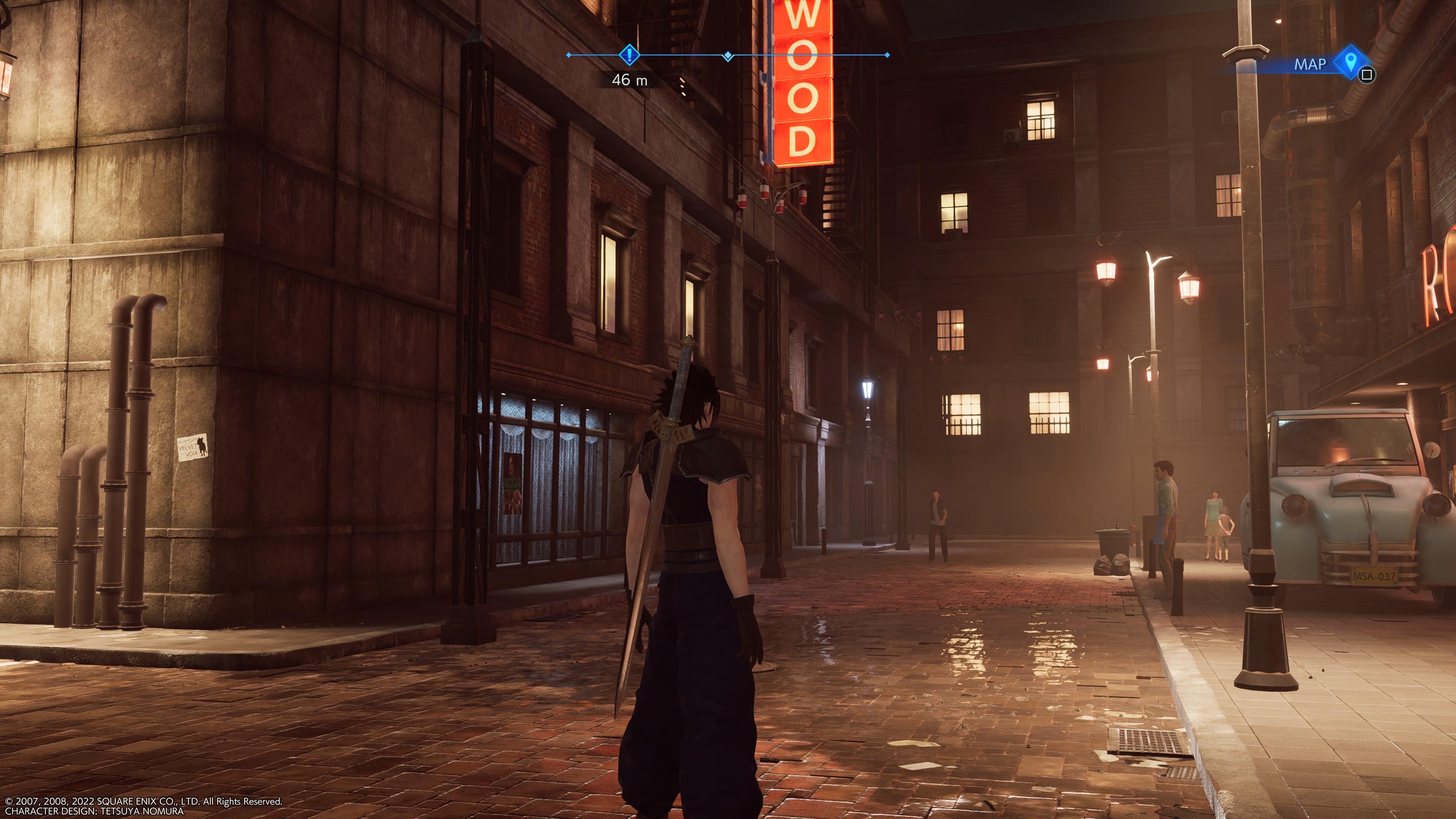
Companies often tout updated graphics as the primary reason to purchase a remastered game, although there are always caveats. Without completely retooling the game from scratch, there’s a limit to how much better the character models and backgrounds can look. A remastered game will still show its age.
Possibly the biggest example of this issue in Crisis Core - Reunion is the way water looks in the game. The small puddles in District 8 provide some impressive reflections that look more like a modern game than you’d expect from a 15 year-old title. But the main fountain in District 8 looks straight out of 2007, as the water falling from the fountain gives the entire object an odd blur effect. It's also worth noting that protagonist Zack’s face can change shape throughout a single scene as the game switches between pre-rendered cutscenes and in-engine scenes. Certain backgrounds also look too flat compared to more modern graphics.
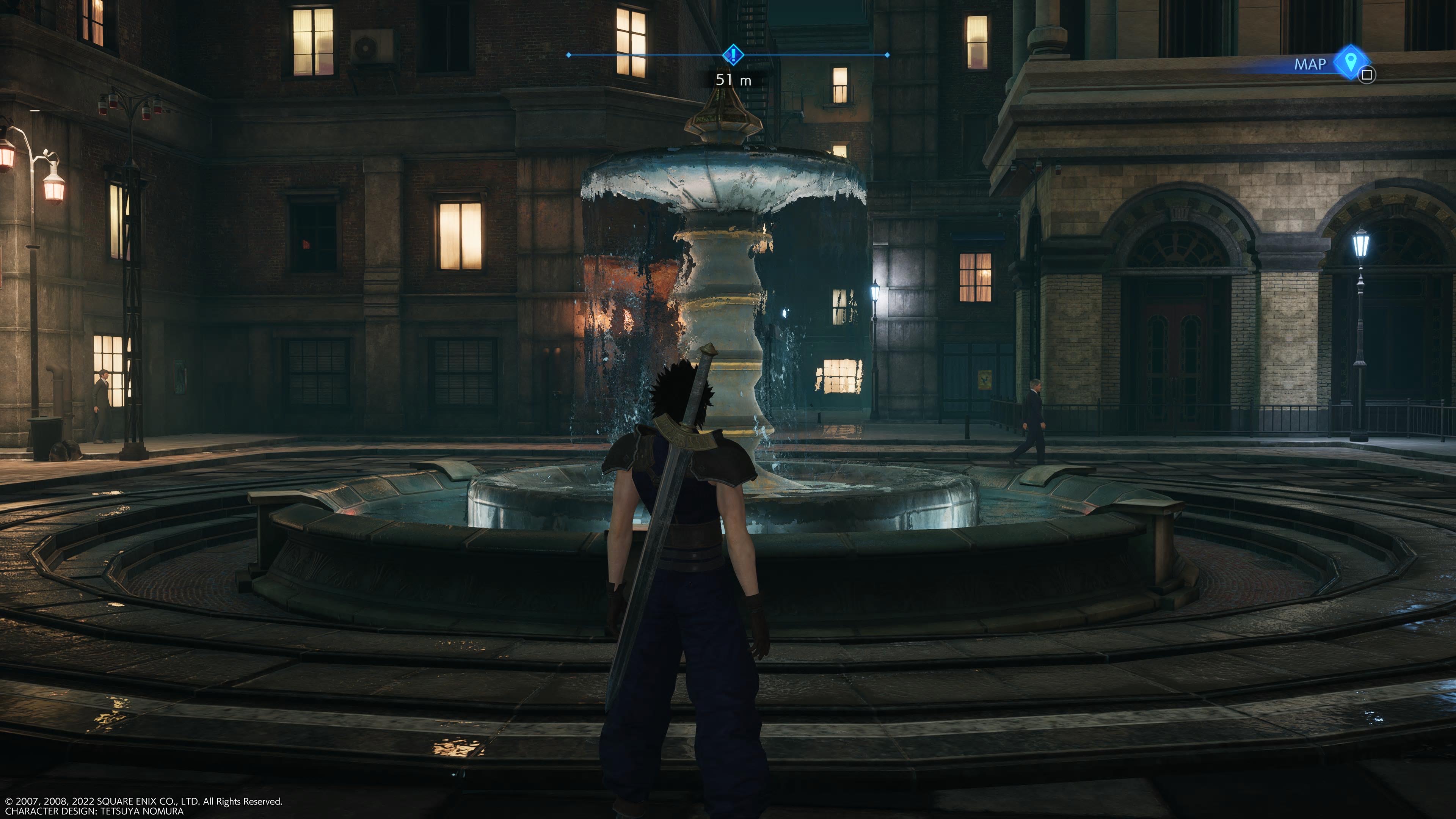
The battle system itself also feels dated. You’ve got a slot-machine limit break roulette, finnicky auto-targeting and an unbalanced difficulty scale. The normal difficulty level is incredibly casual, while the hard mode ratchets up the difficulty by a solid amount, and can feel punishing. You can switch difficulties on the fly, though, which allows you to make the best of both.
Get instant access to breaking news, the hottest reviews, great deals and helpful tips.
Meanwhile, the Digital Mind Weave (DMW)’s slot machine style of limit break is exactly the sort of gimmicky gameplay mechanic that developers were playing with in 2007. As a way to replace Final Fantasy VII’s turn-based combat system, it’s not the worst choice that Square Enix could have made. But there is a reason why it never appeared outside of Crisis Core. The DMW controls buffs, limit breaks and level-ups with a steady degree of randomization, which can be frustrating.
The combat system and the graphics in Crisis Core - Reunion saw the biggest changes, but the fully voiced dialogue and the updated score also help. There are few big budget games these days that don’t have fully voiced scripts, and the new score sounds incredibly crisp.
A compelling prequel
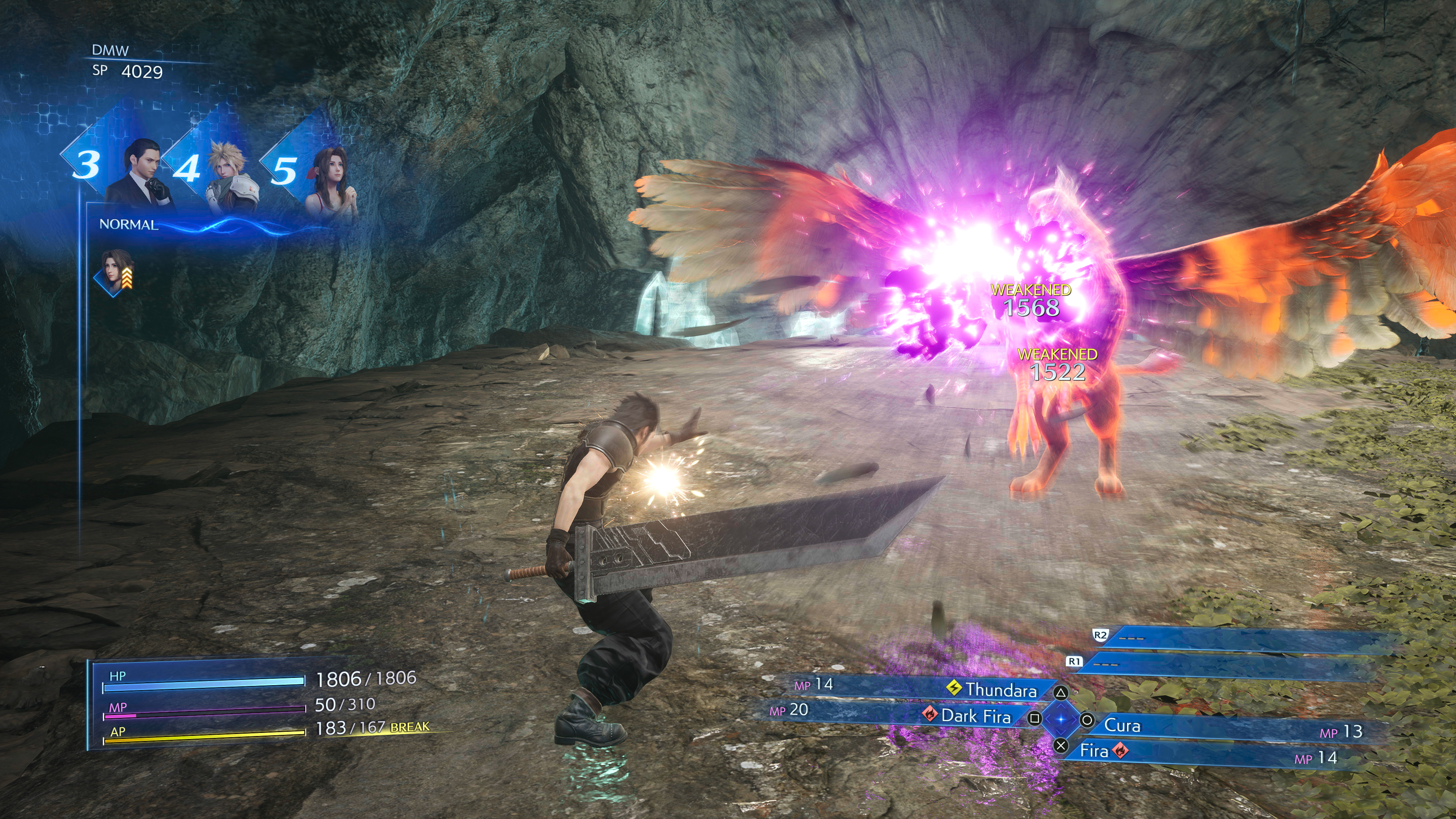
Despite the updates to every other aspect of the game, the story of Crisis Core remains unchanged. Outside of its impact on Final Fantasy VII, the most interesting parts of Crisis Core stem from the main characters: Zack, Genesis, and Angeal. Still, it is hard to gauge the impact or experience of Crisis Core without comparing it to the original FF7. A lot of the tension in Crisis Core comes from knowing what happens to the characters ahead of time. You’re racing against a clock, which you know you can’t beat.
While that could make Crisis Core a lost cause from the jump, the characters and story are compelling enough to make you care about them, at least a bit — even the characters you know are doomed.
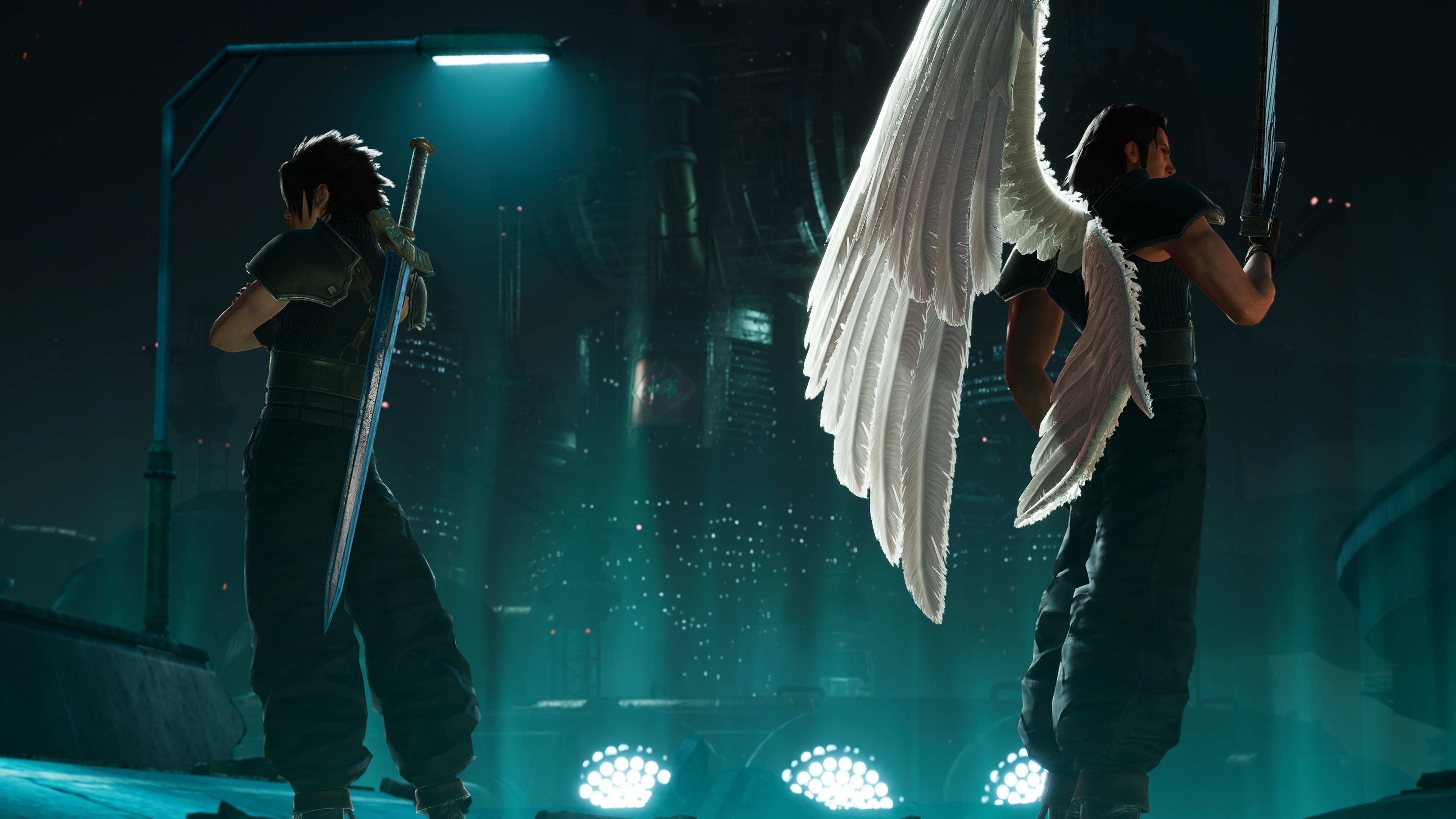
Whether Crisis Core's story is engaging on its own is hard to say. But for fans of FF7, there is a lot to enjoy. The narrative is honestly more heartfelt than it has any right to be.
Even if Crisis Core has some of the dorkiest dialogue I’ve seen in a game in over a decade, there’s a deep emotional core that made it a standout among early PSP titles. And that’s certainly worth experiencing, whether it's for the first time or while revisiting an old favorite.
The perfect game to remaster
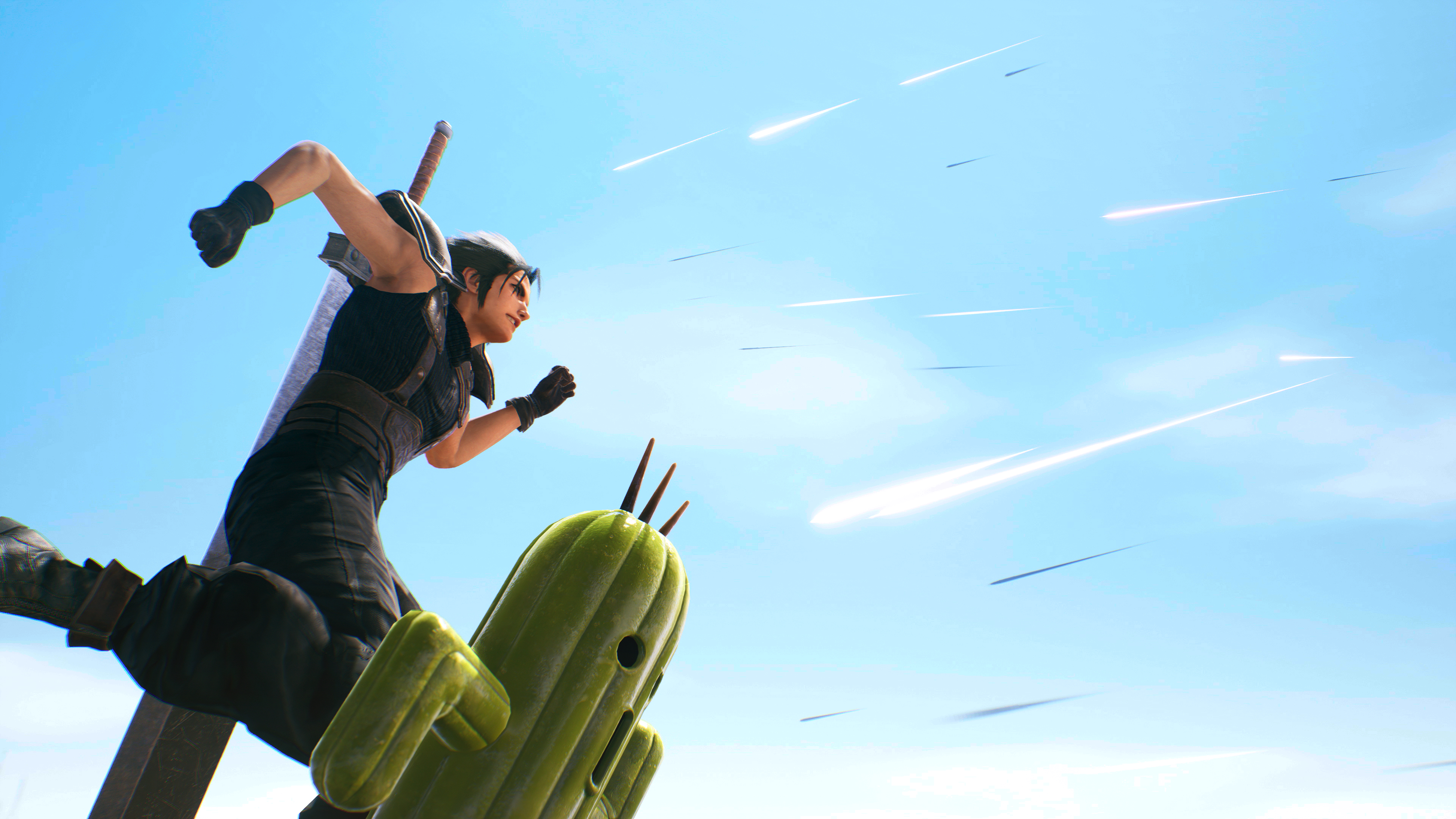
Crisis Core - Final Fantasy VII - Reunion is the kind of experience that justifies the existence of the game remasters in general. Beyond the need to keep up with newer graphics technology, Crisis Core - Reunion opens the game to a wider audience after languishing on a dead platform for close to a decade. Since shipments of the PSP ended in 2014, if you wanted to play Crisis Core, you had to brave the gaming aftermarkets online, or hope you found a PSP and a Crisis Core disc at your local game shop.
Crisis Core - Final Fantasy VII - Reunion is both a faithful representation of the original and a more approachable game for modern audiences.
 Club Benefits
Club Benefits





